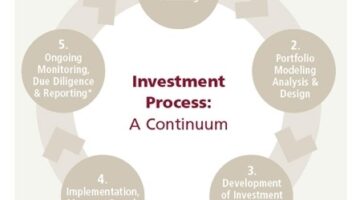Both equity and fixed-income products are financial instruments that can help investors achieve their financial goals. Equity investments generally consist of stocks or stock funds, while fixed-income securities generally consist of corporate or government bonds.
The responsibilities of a fixed-income investment manager may include:
- Portfolio management: Overseeing the portfolio of fixed-income securities and ensuring that it is aligned with the fund’s investment objectives.
- Market research: Conducting research on the fixed-income market in Vietnam to identify potential investment opportunities and assess risk.
- Investment selection: Analyzing and selecting fixed-income securities for inclusion in the portfolio, based on factors such as credit quality, yield, and market conditions.
- Risk management: Monitoring market and credit risk, and implementing strategies to manage these risks and protect the portfolio.
- Reporting: Providing regular reports to clients and stakeholders on the performance and risk of the portfolio.
- Compliance: Ensuring that the fund complies with all relevant regulations and laws, and maintaining records and documentation in accordance with industry standards.
- Client relations: Building and maintaining relationships with clients, including answering questions and addressing any concerns they may have.
- Collaboration: Working with other investment managers, analysts, and other team members to share information and knowledge, and to develop investment strategies.
Note that these responsibilities may vary depending on the specific fund and the size and structure of the investment team.
The responsibilities of an Equity Investment Manager may include:
- Portfolio management: Overseeing a portfolio of equity securities and ensuring that it is aligned with the investment objectives of the fund.
- Market research: Conducting research on the equity market to identify potential investment opportunities and assess risk.
- Investment selection: Analyzing and selecting individual stocks or equity securities for inclusion in the portfolio, based on factors such as company financials, industry trends, and market conditions.
- Risk management: Monitoring market and company-specific risks and implementing strategies to manage these risks and protect the portfolio.
- Reporting: Providing regular reports to clients and stakeholders on the performance and risk of the portfolio.
- Compliance: Ensuring that the fund complies with all relevant regulations and laws, and maintaining records and documentation in accordance with industry standards.
- Client relations: Building and maintaining relationships with clients, including answering questions and addressing any concerns they may have.
- Collaboration: Working with other investment managers, analysts, and other team members to share information and knowledge, and to develop investment strategies.
Note that these responsibilities may vary depending on the specific fund and the size and structure of the investment team. Equity investment managers typically have a strong understanding of finance, accounting, and market trends and use this knowledge to make informed investment decisions on behalf of the fund and its clients.
Fixed-income investment managers and equity investment managers both play important roles in the investment industry, but they differ in several key ways:
- Investment focus: Fixed-income investment managers focus on investing in fixed-income securities such as bonds, while equity investment managers focus on investing in stocks.
- Risk and return: Fixed-income investments tend to be less volatile than equity investments and offer more stable returns, but they generally provide lower returns than equity investments over the long term.
- Investment strategies: Fixed-income investment managers typically employ more conservative investment strategies, seeking to preserve capital and generate regular income, while equity investment managers may employ more aggressive strategies to generate higher returns.
- Market analysis: Fixed-income investment managers typically focus on analyzing credit risk, interest rate risk, and market conditions, while equity investment managers typically focus on analyzing company financials, industry trends, and market conditions.
- Career path: A career as a fixed-income investment manager typically requires a strong understanding of finance and economics, while a career as an equity investment manager typically requires a strong understanding of corporate finance, accounting, and market trends.
Overall, both fixed-income investment managers and equity investment managers play critical roles in the investment industry and require a combination of technical skills, market knowledge, and investment acumen.
Allocate a fixed income portfolio in Vietnam
To allocate a fixed income portfolio in Vietnam, the following steps can be taken:
- Research the market: Research the Vietnamese fixed income market to gain a deep understanding of the types of fixed income securities available and the current market conditions. This includes understanding the interest rate environment, economic indicators, and the credit quality of issuers.
- Determine investment goals: Consider your investment goals, such as income generation, capital preservation, or a balance between the two. This will help you determine the right allocation for your portfolio.
- Assess risk tolerance: Evaluate your risk tolerance to determine the types of fixed income securities that are appropriate for your portfolio. This will help you determine the right balance between high-yield and low-risk investments.
- Choose securities: Based on your research and investment goals, choose the fixed income securities that are appropriate for your portfolio. Consider a mix of bonds, Treasury bonds, and other fixed income securities to diversify your portfolio and manage risk.
- Regularly review and rebalance: Regularly review your portfolio and make adjustments as necessary to ensure that it remains aligned with your investment goals and risk tolerance. This may involve selling some securities and purchasing others to maintain the desired allocation.
- Seek professional advice: If you are unsure about any aspect of allocating a fixed income portfolio in Vietnam, consider seeking the advice of a financial advisor. They can help you make informed decisions and ensure that your portfolio is properly diversified and aligned with your goals.
Note: This is general information and is not intended as financial advice. It is always important to conduct your own research and to consult a financial advisor before making investment decisions.
Source: Lão Trịnh



